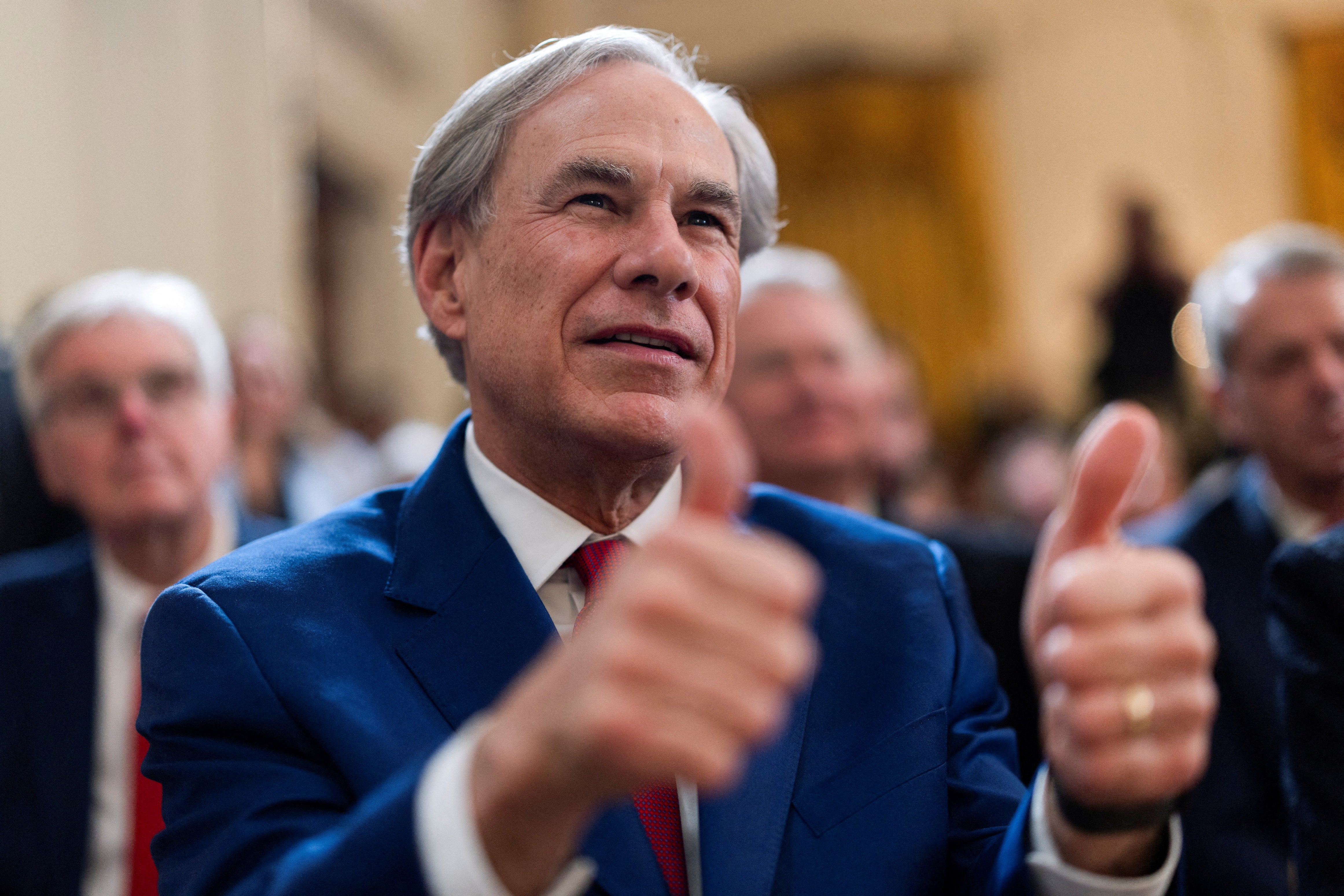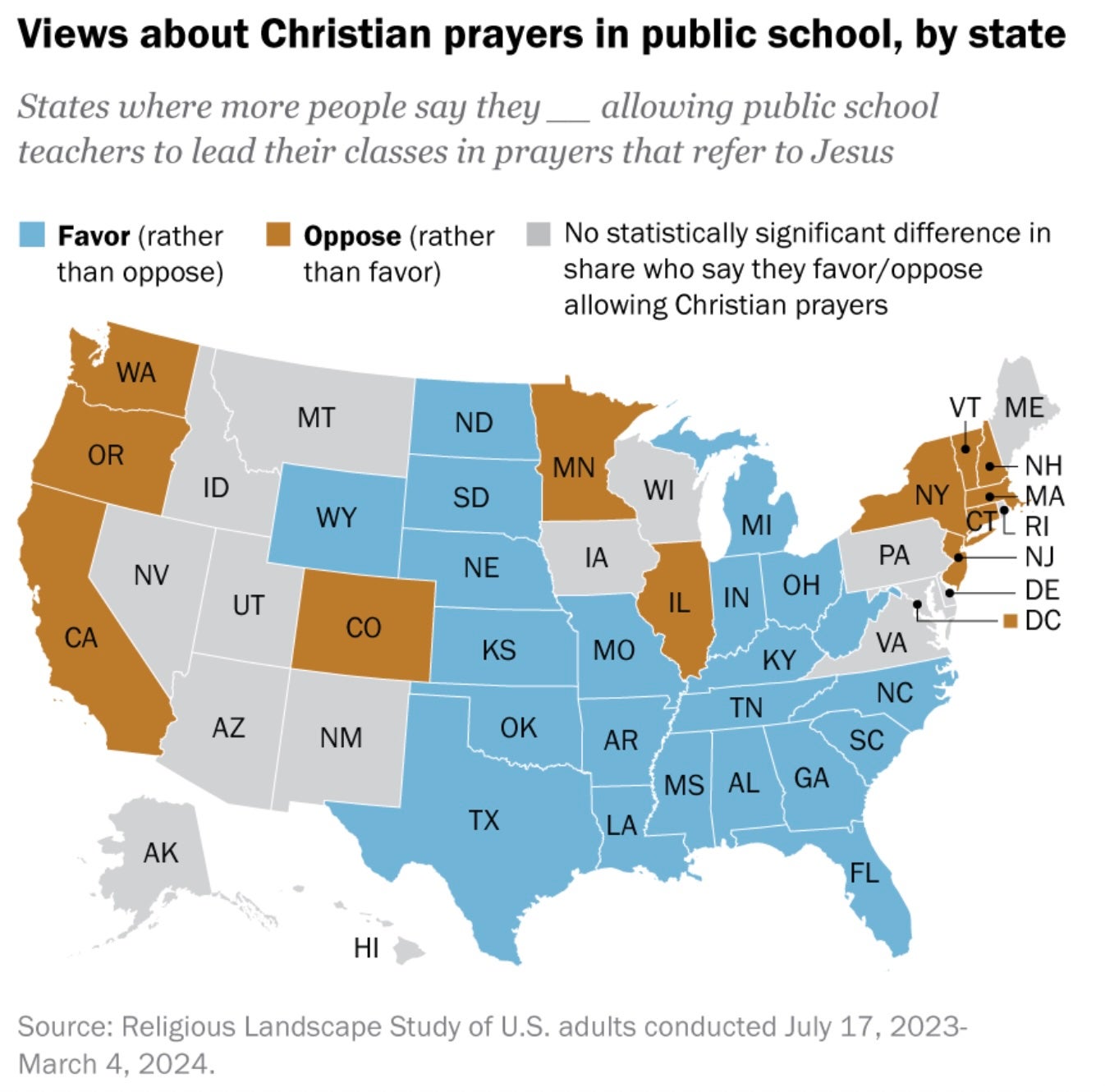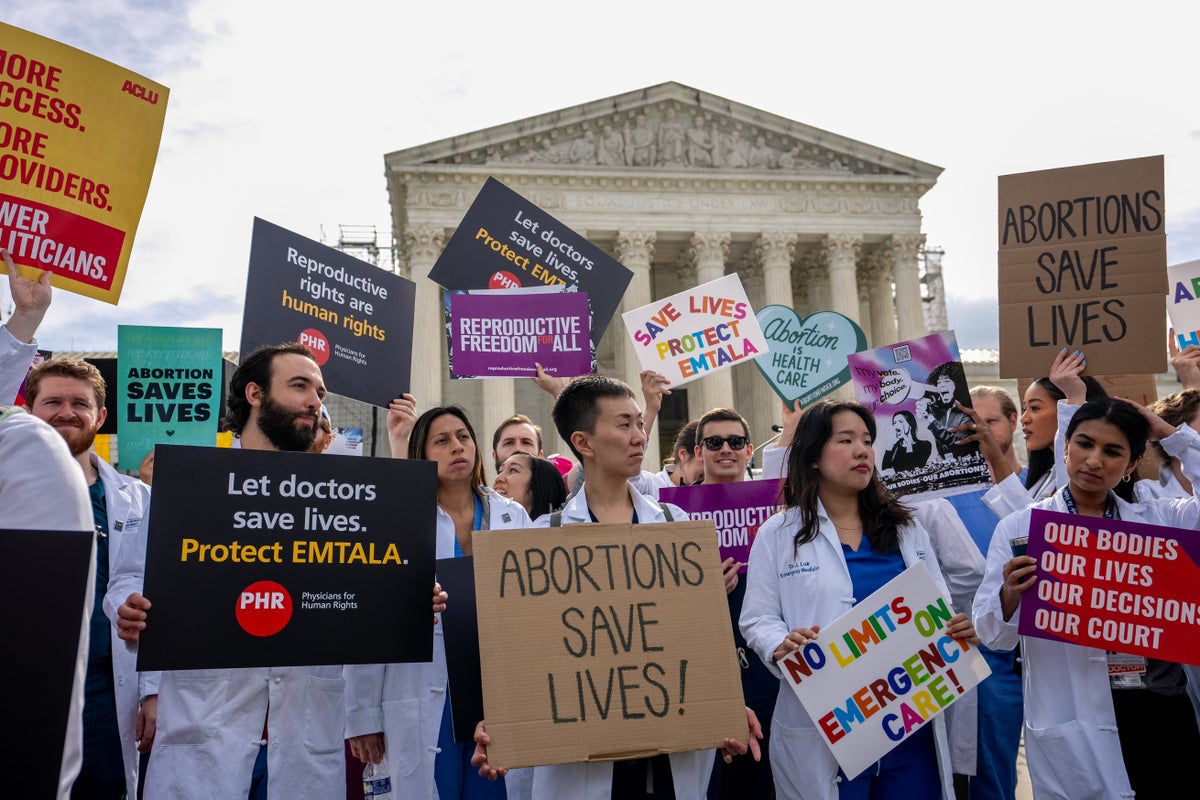A slim majority of American adults (52 percent) favor policies permitting public school teachers to lead Christian prayers in class, according to a recent Pew Research Center report.
By a slightly larger majority (57 percent), Americans also say they favor allowing teacher-led prayers referencing god, but not to any specific religion.
This comes just days after Texas Governor Greg Abbott approved Bible readings in schools and mandated that the Ten Commandments be displayed in classrooms.
Republican lawmakers in more than a dozen states are pushing bills that allow for students in public schools to be exposed to religious doctrine — though critics argue that this violates the Constitution’s separation of Church and State.
The Establishment Clause of the First Amendment states: “Congress shall make no law respecting an establishment of religion,” or by favoring one over another.

Those pushing the implementation of such policies in Texas and other conservative states, mostly in the South, frame their arguments as concerning religious freedom. They believe the Supreme Court is on their side.
An evenly divided Supreme Court recently upheld a ban on what would have been the nation’s first religious public charter school, in Oklahoma.
On the same day that Gov. Abbott approved the Texas legislation, a federal appeals court in New Orleans ruled that a similar law in Louisiana, which required the Ten Commandments to be displayed in classrooms, was unconstitutional.
Legal battles persist over prayer at school sporting events and the allocation of time for prayer during the school day.
The Pew poll found that just over half of U.S. adults (52 percent) say they favor allowing public school teachers to lead their classes in prayers that refer to Jesus, with 27 percent strongly favoring this, and 26 percent favoring it.
Some 46 percent of adults oppose allowing public school teachers to lead their classes in prayers that refer to Jesus, with 22 percent strongly opposing this, and 24 percent opposing it.

The survey of nearly 37,000 adults, conducted between July 17, 2023, and March 4, 2024, was large enough to break out results for all 50 states and the District of Columbia.
In 22 states, more adults say they favor allowing teachers to lead their classes in prayers that refer to Jesus than say they oppose it.
Support for Christian prayer in schools is particularly high in parts of the South, including Mississippi (81 percent), Alabama (75 percent), Arkansas (75 percent), Louisiana (74 percent), and South Carolina (71 percent).
Other Southern states, such as Oklahoma, Kentucky, and West Virginia, are also among the states with the most support of Christian prayer in schools (67 percent in each state favor it).
In eight Midwestern states, there is more support than opposition for allowing teacher-led Christian prayers: South Dakota (65 percent), North Dakota (61 percent), Indiana (58 percent), Kansas (58 percent), Missouri (57 percent), Nebraska (56 percent), Ohio (53 percent), and Michigan (53 percent).

In 12 states and the District of Columbia, more adults say they oppose allowing teachers to lead their classes in prayers that refer to Jesus than say they favor it.
Three of these states are on the West Coast: Oregon (65 percent), Washington (61 percent), and California (56 percent). Six are in the Northeast: Vermont (64%), Connecticut (60%), New Hampshire (60 percent), Massachusetts (58 percent), New York (53 percent), and New Jersey (53 percent).
There is also more opposition than support for allowing teacher-led Christian prayers in Minnesota (59 percent), Colorado (58 percent), and Illinois (54 percent).
The District of Columbia (69 percent) ranks among the parts of the country with the highest levels of opposition to allowing teachers to lead their classes in prayers that refer to Jesus.
The 16 remaining states are divided, with no statistically significant differences in the shares who favor or oppose allowing teachers to lead their students in prayers that mention Jesus, and include every state west of Texas and Colorado with the exception of Wyoming.

 5 hours ago
1
5 hours ago
1









